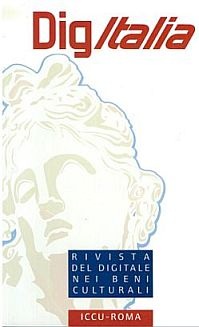Il progetto di digitalizzazione del patrimonio storico della Biblioteca di Area Agraria dell’Università di Napoli “Federico II”
Keywords:
scientific heritage, digitization, agriculture libraries, digital collections, virtual exhibitionsAbstract
The Library of Agriculture Area and the Museum Centre MUSA, both belonging to the University of Naples “Federico II”, made an agreement in order to cooperate, to recover and to promote the book and documentary holdings and the heritage of the eighteenth-century Royal Palace of Portici, which was the home of the first Regia Scuola Superiore di Agricoltura, and nowadays accommodates the seat of the Department of Agriculture. The project of digitization of the rich book heritage and of the collections of the Museum Centre MUSA (herbaria, collections of hemps and tobaccoes, etc.) is the cornerstone of the cooperation. This essay is about the organisation and the criteria of fullfillment of this project.
Downloads
Downloads
Published
How to Cite
Issue
Section
License
Copyright (c) 2020 DigItalia

This work is licensed under a Creative Commons Attribution-ShareAlike 3.0 Unported License.
The Authors publishing their contributions on this journal agree to the following conditions:
- The Authors detain intellectual property rights of their work and transfer the right of first publication of the work to the journal, under the following Licence: Attribution-ShareAlike 3.0 Italy (CC BY-SA 3.0 IT). This Licence allows third parties to share the work by attributing it to the Authors and clarifying that the work has been first published on this journal.
- Authors can sign other, non-exclusive licence agreements for the dissemination of the published word (e.g. to deposit it in an institutional archive or publish it in a monography), provided that they state that the work has been first published on this journal.
- Authors can disseminate their work online (e.g. in institutional repositories or on their personal websites) after its publication, to potentially enhance knowledge sharing, foster productive intellectual exchange and increase citations (see The Effect of Open Access).






